This Sushi Ambassador Promotes Japanese Culture
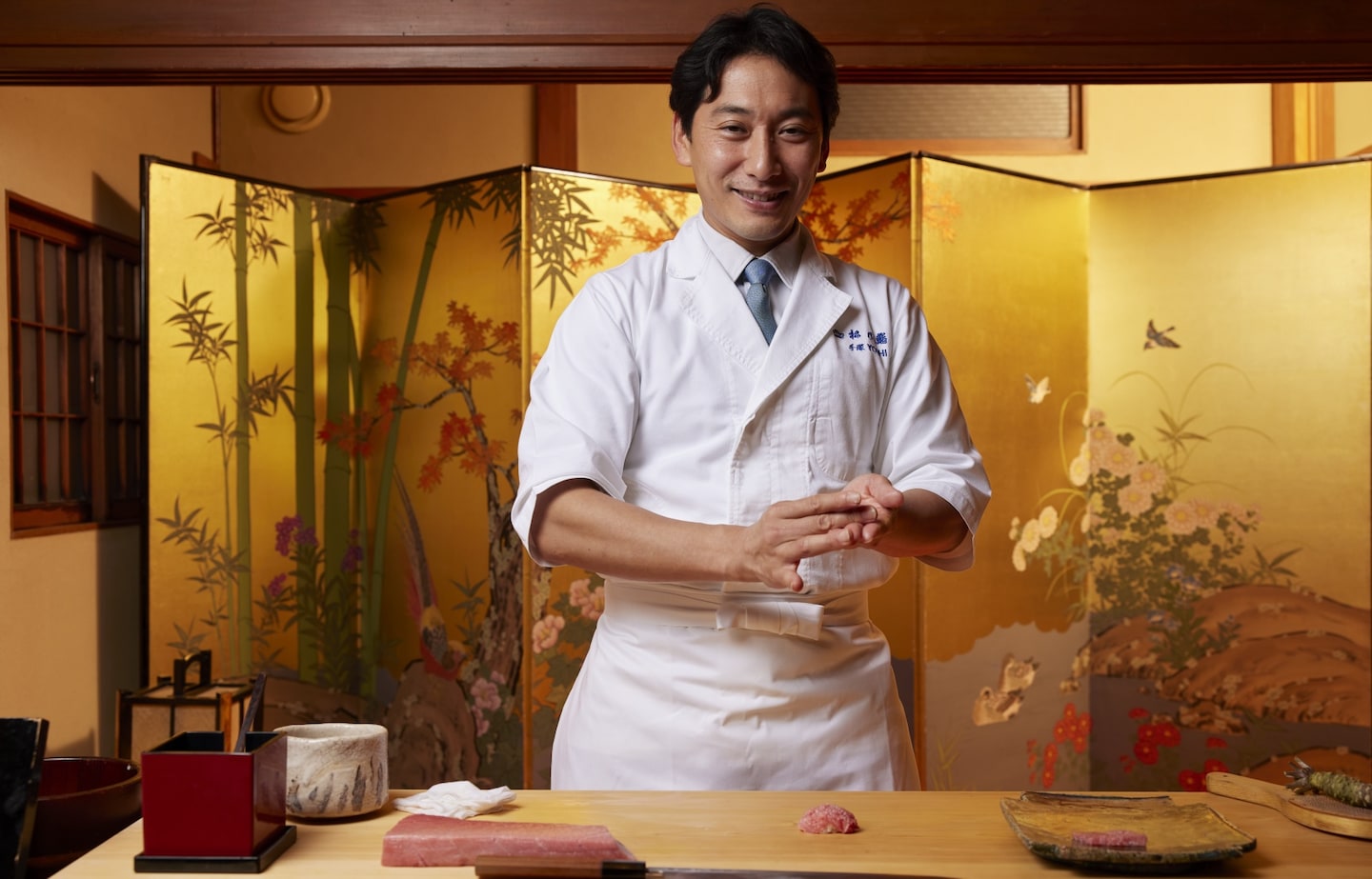
Matsunozushi is a historic sushi shop located near Tokyo’s Omori-Kaigan Station that was founded in 1910. From behind the counter, its fourth-generation chef Yoshinori Tezuka can explain in detail about the sources of the ingredients and the food preparation methods.
By AAJ Editorial Team"My mission is to provide a once-in-a-lifetime sushi experience that is unique to Tokyo, Japan and tailored to that customer."
Matsunozushi is located near Omori-Kaigan Station in a traditional old neighborhood.
Matsunozushi is very popular among tourists from other countries. What kind of service do you provide?
I always think about it this way. Its good fortune that a tourist would choose Japan from among the many choices of travel destination, and then choose sushi for one of the three meals in a day, and then—from among the countless sushi shops available—choose Matsunozushi. So we provide our customers with the best possible service. My mission is to provide a once-in-a-lifetime sushi experience that is unique to Tokyo, Japan and tailored to that customer.
Of course, serving customers a fixed multicourse meal is fine. But at our shop, we obtain as much information as we can about a customer, such as their taste preferences and how much they enjoy food challenges. Then we serve sushi that will match their preferences.
For example, some people like tuna, and want to eat fresh, superb ingredients at a sushi shop in Japan. Other people are still hesitant about raw seafood. For the latter group, we try to deal flexibly with their food preferences, which might differ depending on where they are from, by offering them grilled food, for example.
If one member in a group of diners is a vegetarian, we offer them vegetarian sushi. If someone cannot eat something due to religious reasons, we certainly respect their beliefs. I want everyone to have a good time and leave with heartfelt smiles.
"In an international society and multi-ethnic culture, it is impossible to communicate unless it is put into words. "
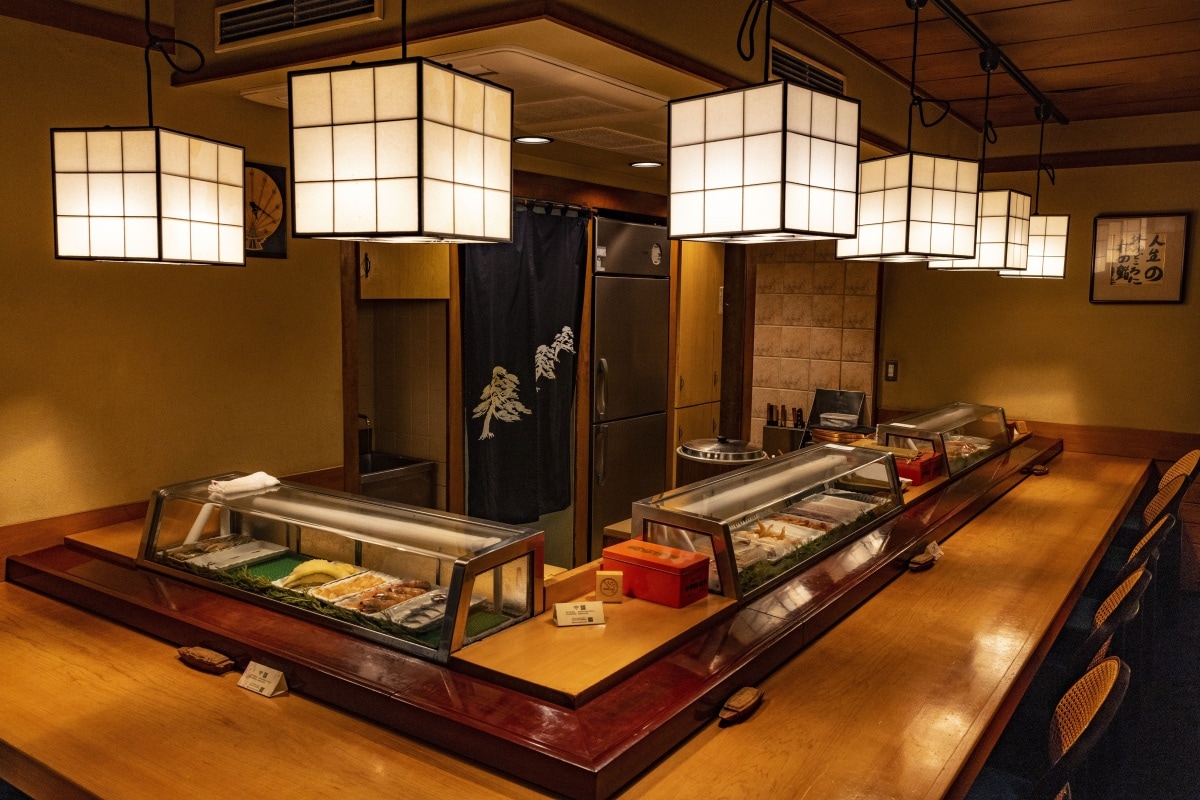
Customers can sit at the counter and watch the chef make sushi, or dine in one of the private rooms.
Did you learn how to be flexible while you were working overseas as a ski guide and tour guide before becoming a sushi artisan?
I am the fourth-generation chef at Matsunozushi, and I don't think my essential qualities are different from my father's generation. As much as possible, my father tried to serve items that his Japanese customers preferred. I do the same thing for my overseas customers. We’re different in the way my father makes sushi in silence, while I talk a lot in English, explaining things ranging from the ingredients themselves to the source. Japanese customers have the same cultural background, so they can often sense and understand our commitment and thoughts without having to understand our words. In addition, in Japan, there is a belief that telling everything is uncouth. However, in an international society and multi-ethnic culture, it is impossible to communicate unless it is put into words. For this reason, I try to verbalize as much as possible and use tools to help people of all nationalities understand the sushi culture.
Another thing I have decided is to serve sushi mainly to overseas customers at lunchtime. In the evening, I would like to limit the number of overseas customers to one group only, while the rest of the customers will continue to be Japanese as before. This is what I experienced while traveling overseas. Its more enjoyable if one dines in a place where only the locals gather, and the local language fills the air than eating at a shop full of tourists. That experience will remain in one's memories of the trip. So I have intentionally created a similar environment at this shop. I’m happy if my customers are able to experience a cultural exchange, like, "The guy next to me spoke to me and offered me a drink. It was delicious!"
In contrast, lunch is mainly for overseas guests. We talk about fish in English, explain the story of each piece of equipment, and offer sushi-making experience. We are trying to create a happy environment for both Japanese and international guests.
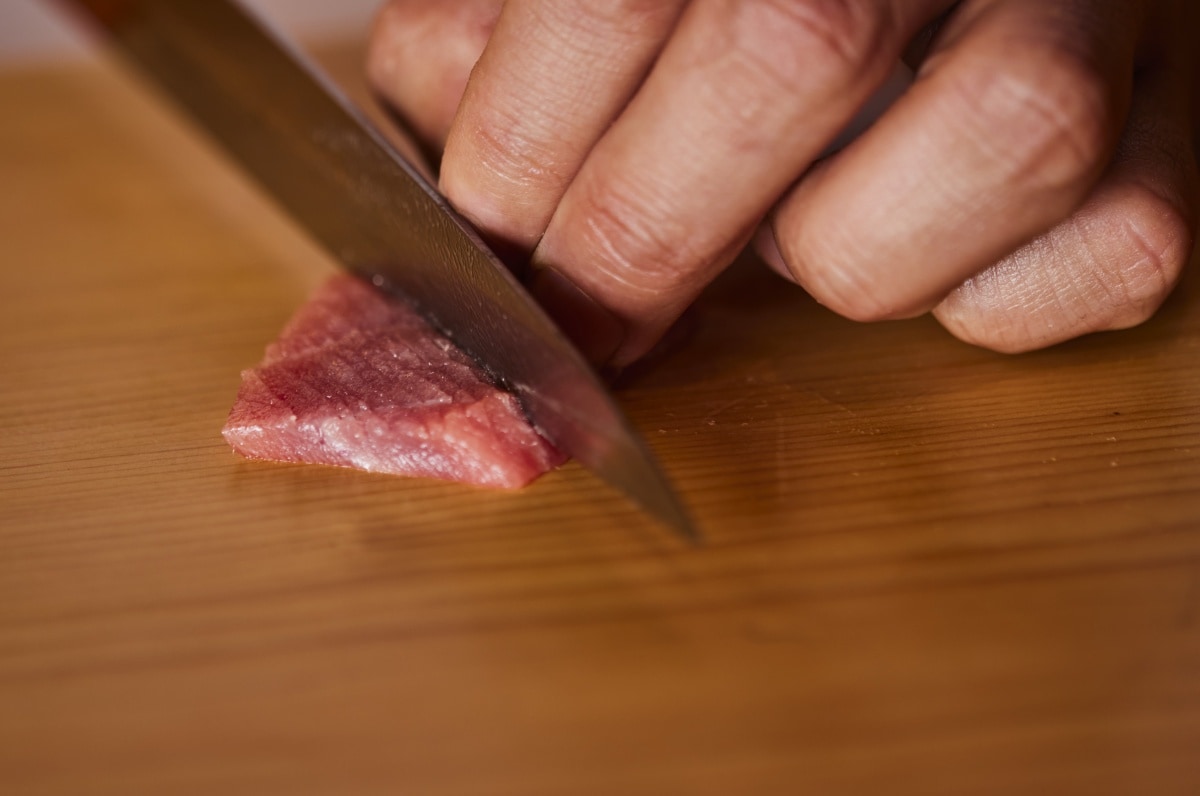
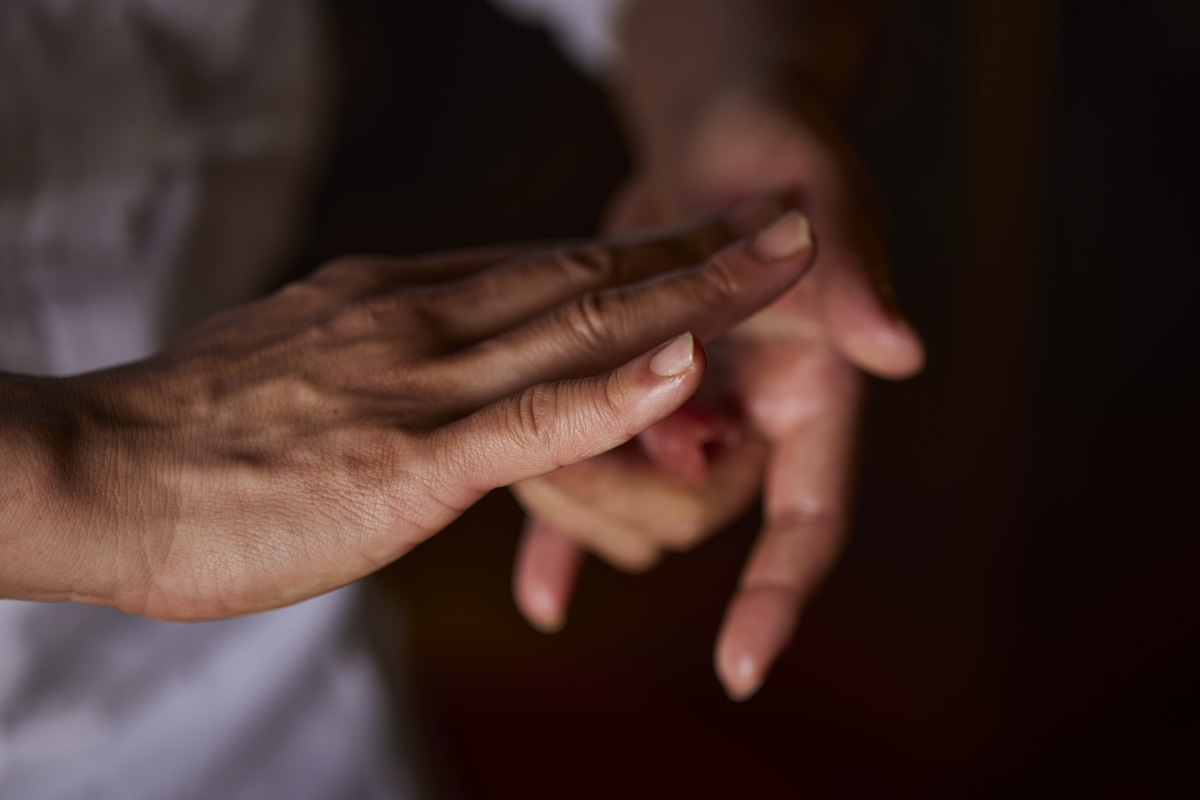
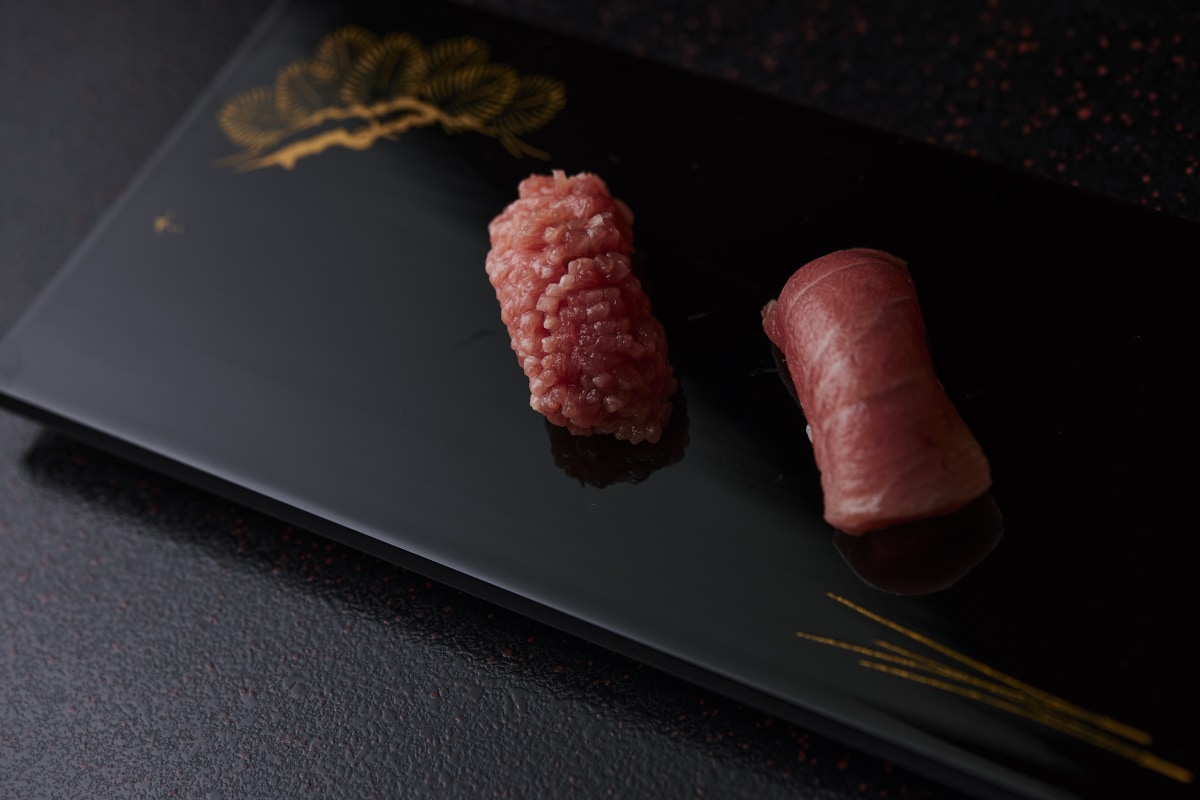
Chef Tezuka can explain while this tuna is served with one piece finely scored with a knife, among other details about the art of Japanese cuisine.
"What I serve is not sushi but Japanese culture. "
We heard that, because of your desire for people from overseas to learn about Japanese culture, you offer programs called the “sushi-making experience” and the “business-trip sushi.”
Yes. Whether I’m teaching sushi-making or lecturing, I often explain that what I serve is not sushi but Japanese culture.
For example, when a customer who comes to the shop for a sushi-making experience places an order, saying they want to enjoy Japan during the two-hour course, I don’t only serve sushi. I may invite geishas and let the customer experience the traditional pleasures of a ryotei [an expensive Japanese cuisine restaurant]. Here in Omori, dating back to the Meiji period, there was a district of these kind of establishments where gentlemen would gather, and there were also geisha houses. Even today, there are shops that have carried on that tradition. Customers might not understand a dance and get bored, so I created a program in which I explain the background of the dance. I also created lyric so I can tell the customers to clap their hands at some particular point, and allow everyone there to experience a sense of unity.
The standard course includes the experience of cutting a fish with a sashimi knife and grating wasabi. Meanwhile, I let them sample three types of sake that I have on hand. After that, I explain how the different sakes were processed and what kinds of flavors the brewers were aiming for when they made the sake. Also, for example, if a customer is later going to Kansai, I explain the differences between the soups of Kanto and Kansai.
Eating sushi is an opportunity for a customer to learn a little about Japanese culture. If learning about it deepens their experiences in Japan, they will have a good impression of Japan and likely feel like they will want to come to Japan again.
The program, of course, is different for a lecture at a conference, where there’s a large audience. Some of them will sincerely want to know about the food, while others might not be so interested. Those who aren't interested might feel that a serious program on Japanese culture is a form of torture. In that situation, I might prepare "fish cards," for example. Each card features a fish with its main features, where it is caught. I just leave the cards somewhere where those who are interested can study them, while those who aren’t can ignore them. I think they are happier if they have a choice.
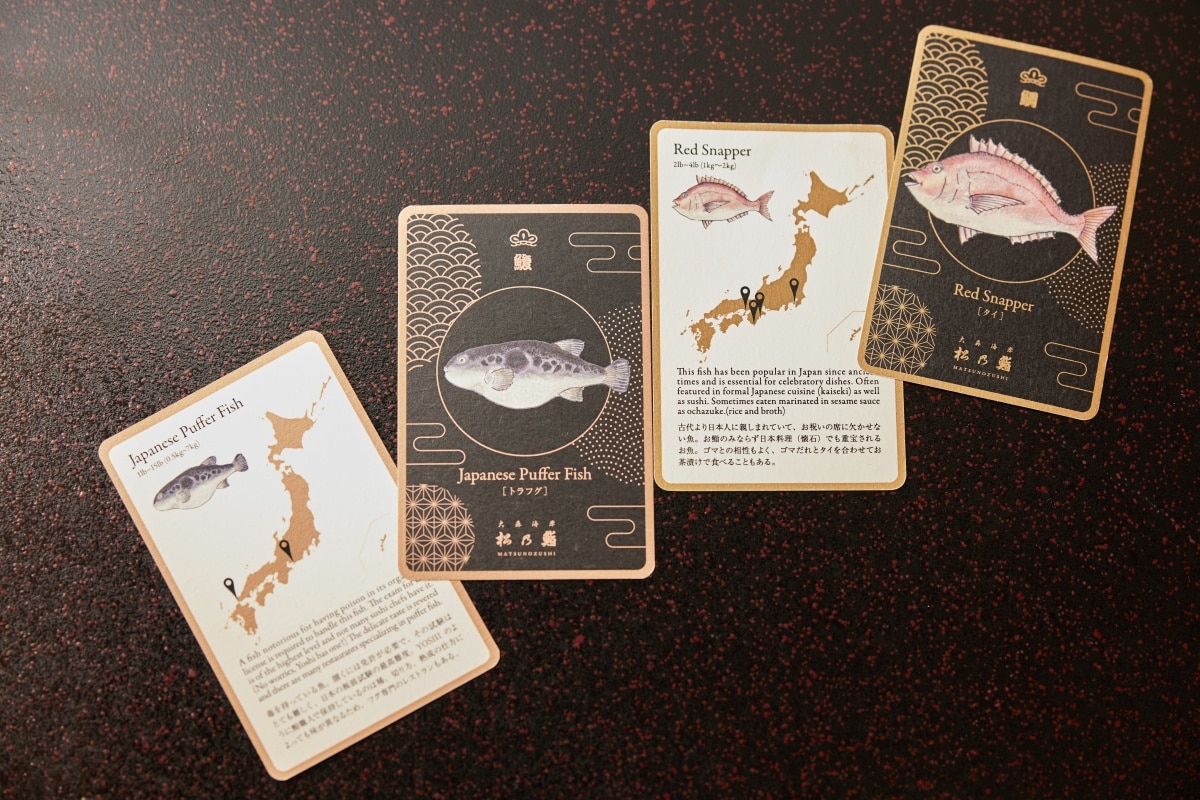
The ”fish cards” created by Chef Tezuka, who wrote the explanatory text.
"All that I am doing now is expressing through sushi the painstaking hospitality that I once received. "
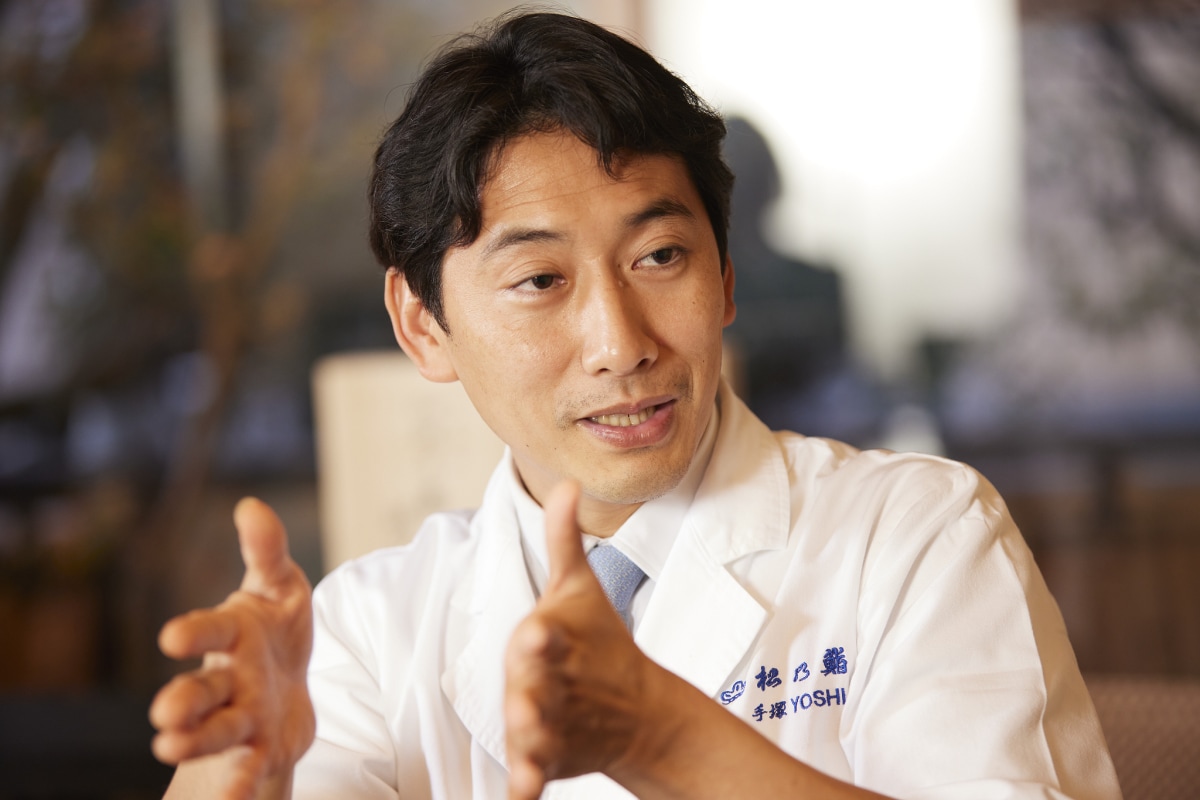
Where does your hospitality, which is extremely thorough, come from?
I have a theory. There are some guesthouses in the Japanese countryside where you can receive service that exceeds that of a 5-star hotel.
During my student days, I often went to stay at guesthouses in Niigata and Gunma on ski trips. If I told the guesthouse that I would arrive on a certain train, someone from the guesthouse would pick me up on arrival. If it was cold in the car, she’d have a blanket for me. When I would arrive at the lodging, my room would already be heated. When I would get hungry, she would bring food, telling me the rice was harvested that year. She would bring out pickled vegetables and confirm that I liked them. If I fell ill, she would diligently take care of me, giving me a hot-water bottle or some rice porridge. The Japanese have naturally been doing these kinds of things. I felt that the service was on par with the finest hospitality in the world. I thought if people from overseas were to experience this kind of hospitality, they would absolutely become addicted to the charms of Japan. All that I am doing now is expressing through sushi the painstaking hospitality that I once received.
My hospitality has been appreciated, so I was able to experience creating a sushi luncheon for the wives of the leaders meeting at the G20 Osaka summit as well as making sushi for the British royal family. I don't know how far I can go in the future, but I hope to convey the fun and possibilities of the work of an artisan to the young generation in Japan.
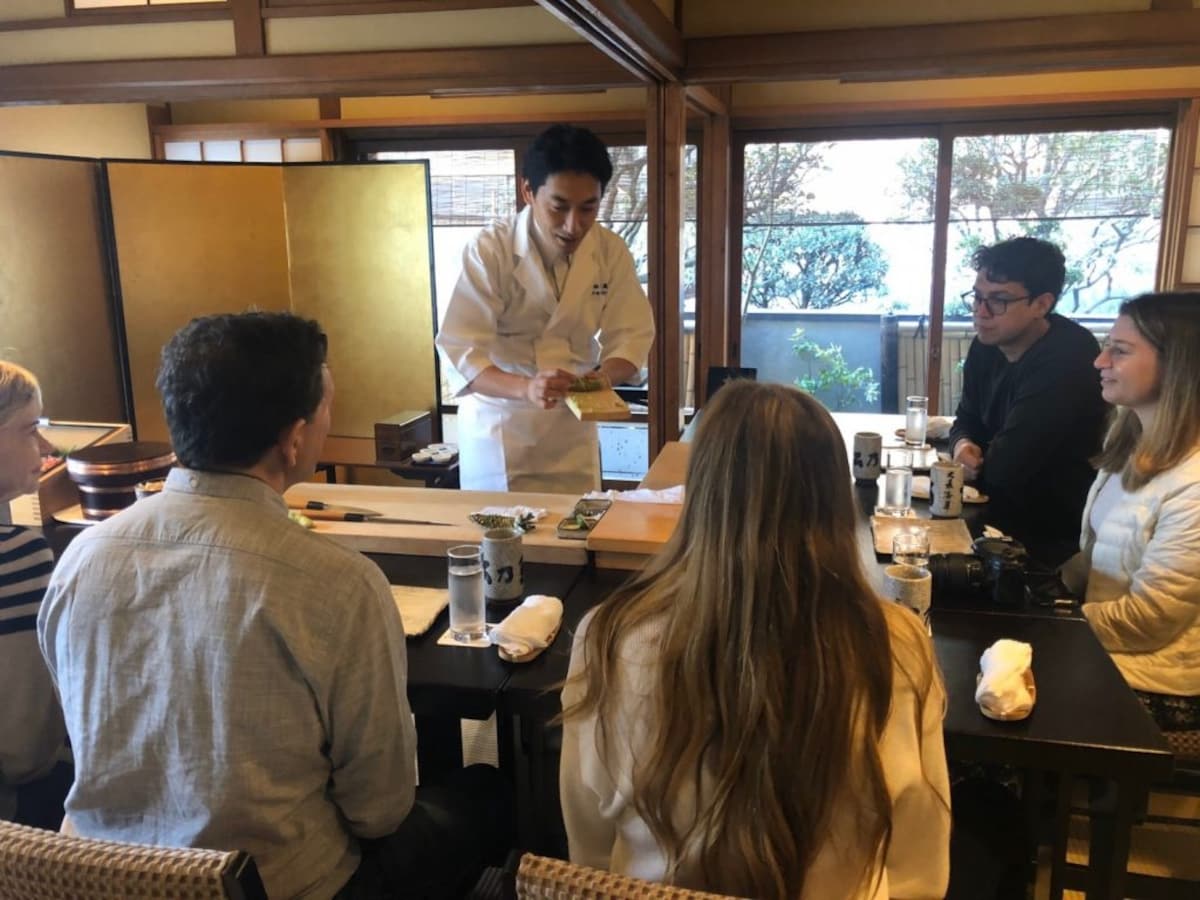
At the "sushi-making experience," participants can enjoy experiencing Japanese culture while listening to the explanation in English.
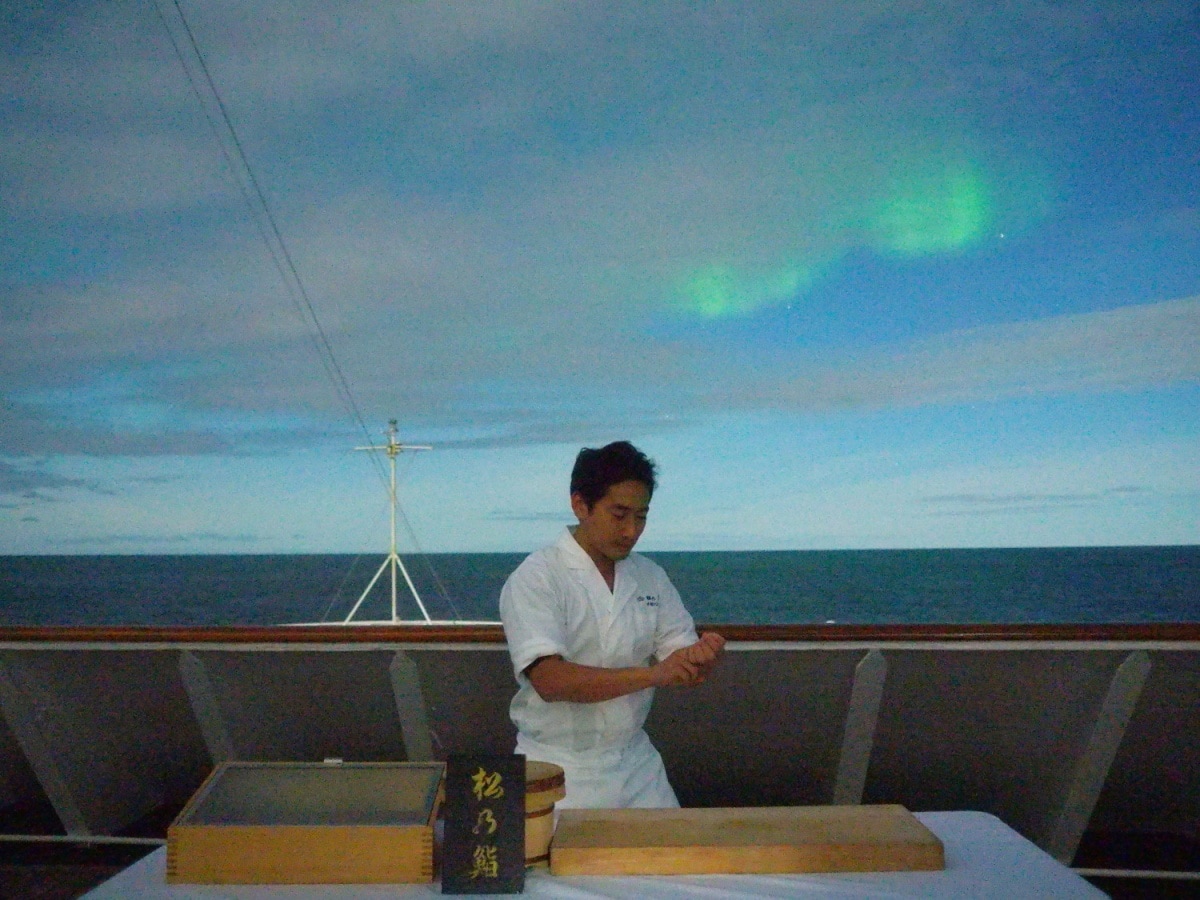
On a cruise ship in the Arctic Ocean, Chef Tezuka makes sushi and gives lectures.
Yoshinori Tezuka(Yoshi)
Yoshinori Tezuka is the fourth-generation sushi chef at Matsunozushi, a long-established sushi shop in Omori Kaigan, Tokyo. He began training as a sushi chef when he was a student. After graduating from university, he lived for four years as a professional ski guide in Europe and North America. He was successful as a guide for the wealthy, leading tours to over 100 ski areas around the world, going on world cruises aboard luxury cruise ships, and going on winery tours in Europe. After returning to Japan, he further trained as a sushi chef. He then became a sushi artisan at the age of 30. In addition to making use of his background by providing sushi at conferences and other events, he is currently undertaking in a wide range of activities, such as consulting, lecturing at businesses, universities, and other educational institutions.
https://matsunozushi.com/en/



